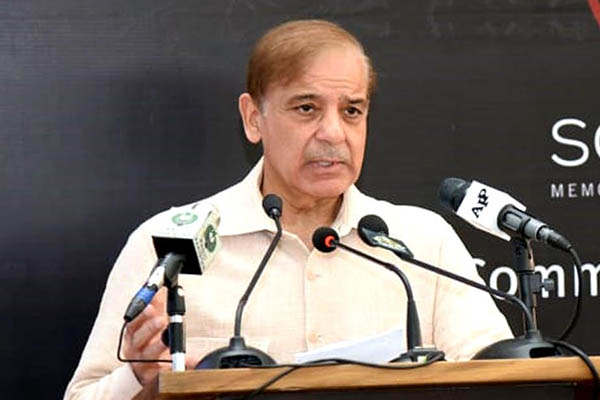
Photo courtesy PID
Prime Minister Shehbaz Sharif on Friday said ending loadshedding is the responsibility of the incumbent government, adding that authorities are working to take effective measures to ensure uninterrupted electricity for the public.
Presiding over a meeting to review measures being taken to end prolonged outages—which the government says are caused by several power plants functioning improperly—he said the government was aware of the problems being faced by people during recent heatwaves, adding that every effort would be made to address the power shortfall immediately.
The prime minister also reiterated in the meeting that the previous government’s failure to maintain power plants was responsible for the power shortages. He said quashing the deal with Qatar for supply of LNG was a “big mistake” of the ousted PTI-led regime. Similarly, he said, a revolving account was not opened with China despite a commitment to do so.
Separately, the prime minister—in a posting on Twitter—expressed happiness over the launch of work on the 720MW Krut hydropower project. “In the last four-and-a-half years of the previous government, no significant progress has been made on this project,” he wrote. “This is the first hydropower project to be completed under the China-Pakistan Economic Corridor. I am grateful to the Chinese government for its cooperation in this project,” he added.
However, while the premier is vowing to end loadshedding, Energy Minister Khurram Dastgir-Khan and Minister of State of Petroleum Musadaik Malik warned the same day that energy prices would be rising in the coming months, with little relief expected before the end of the year.
In separate press conferences, both ministers blamed the crisis on the previous government’s “delays” in price adjustments for electricity and natural gas, adding that under law the incumbent government was bound to fulfill the price changes for economic stability.
Dastgir-Khan said the country’s power demand had exceeded 30,000MW against supplies of 21,842MW, adding that the economically feasible capacity was just 25,000MW. He claimed that even though domestic consumers were suffering loadshedding, the government was ensuring uninterrupted power for industries to protect the employment of thousands of Pakistanis.
